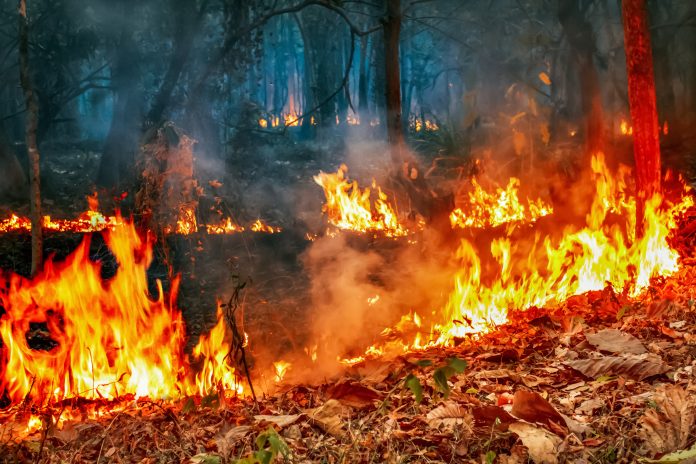Here we explore the ways in which climate scientists are working to combat climate change and what we can do to help
The Australian bushfires, at the back end of last year, were a stark reminder that climate change is having serious implications on livelihoods and doesn’t look like slowing down. All but one of warmest years on record have taken place the other side of the millennium – with Earth now the hottest it has been in 120,000 years. Calls for action on climate change have fallen on deaf ears for almost 20 years, but now it looks like we’re on the verge of breaking point.
Can we still save our planet?
A third runway at Heathrow Airport was deemed illegal, showing the importance of tackling climate change – a challenge that includes a goal of net-zero emissions by 2050 set by the UK government. Scientists have started to putting things into practice and there’s been signs of progress through steps carried out at home.
So, which of these measures can we learn from to reduce our carbon footprint?
Ground control
0.24 tonnes of carbon is emitted for a return flight of one hour and 20 minutes, giving air traffic an unwanted title of being one of the highest contributors to carbon in the world. Experts have said travellers should restrict themselves to just one short-haul flight every two to three years.
The alternative to jet-setting can be a car-ferry-car journey or a rail journey like a trip on the Eurostar. The argument for travelling by plane collapses when the same trip by car and boat would produce 0.08 tonnes of carbon — less than a third of the emissions produced by a plane for the same journey.
| Newcastle to Belfast Round Trip: Car-Ferry-Car vs Plane | ||||
| Mode of Transport | Distance | Time | Emissions per km/hr | Total |
| Car-Ferry-Car | 734 km | 13 hours | 120g per km | 88,080g (0.08 tonnes) |
| Plane | 584 km | 1hr 20 mins | 90g per hour | 240,000g (0.24 tonnes) |
Statistics are in favour of a journey much closer to the ground, with experts starting to take a stand. Professor Dave Reay from the University of Edinburgh is setting the best example for his children. He gave up flying in 2004 and has opted for the staycation, taking his family on trips around the British Isles instead of jet setting to the other side of the world.
A ferry to Amsterdam proved that a lack of flying doesn’t stop you from exploring other cultures and attractions.
Plastic-free paradise
One of the biggest causes for concern around fighting climate change is the amount of plastic being dumped into oceans. Almost eight million tonnes of plastic enter the ocean every year, which consequently destroys the environment, as well as the animal and plant life to which they play home.
Plastic Free – the initiative that has been a hit, 250 million times over – is cleaning streets and ultimately, our oceans. There’s also plenty you can do at home too.
Siobhán Pereira went plastic-free in rooms like her bathroom and is always looking to encourage others to follow her lead. You can switch your plastic toothbrush for bamboo or biodegradable alternative for starters, as well as choosing an eco-friendly soap.
Pereira said: “We’ve got so used to going into the supermarket, putting something into our baskets and coming home, but we haven’t considered what happens at the end of its life.” Supermarkets are working to reduce plastics in the fruit and veg aisle but with higher costs associated with eco choices, are we being priced out of saving the earth?
Go off the grid, for the greater good
Social media channels, dominated by materialistic possessions, show how easy it is for people to complain about others looking into our private lives. With everything available at the touch of a button, from switching your heating on at home before you have left the office for the day, to ordering clothes through your smartphone, technology is making everything more convenient for consumers.
Start from square one. Choose a LPG Bulk Tank and remove factors that end up causing a rise in our carbon footprint. Switch your oil heating for the more environmentally friendly liquefied petroleum gas (LPG). LPG produces fewer carbon emissions when burned and can also be used for domestic tasks, including fuelling an oven, as well as your boiler.
Put your mind to it and you can make a real difference. Read Dr Alison Green’s book for guidance. The national director at Scientists Warning has opted to put her house on the market to downsize her carbon footprint. She plans to grow her own food, insert solar panels to source electric, and make a commitment to running an eco-friendly house.
Scientists are pulling out all the stops and governments are starting to take climate change seriously. But, until the everyday person is sold on the idea that life will be better for them, it seems we may be having the same conversations in 10 to 15 years’ time.
We have been slow to react to climate change, but we can make a long-lasting difference. Will you make the change today and give our planet the chance to survive?
Sources
https://abcnews.go.com/Technology/world-ocean-day-2019-oceans-plastics-problem/story?id=63324490
https://abcnews.go.com/Technology/world-ocean-day-2019-oceans-plastics-problem/story?id=63324490
https://co2.myclimate.org/en/portfolios?calculation_id=3407532
https://darkbluejournal.com/how-to-radically-minimize-your-bathroom-routine-less-plastic-more-money/











